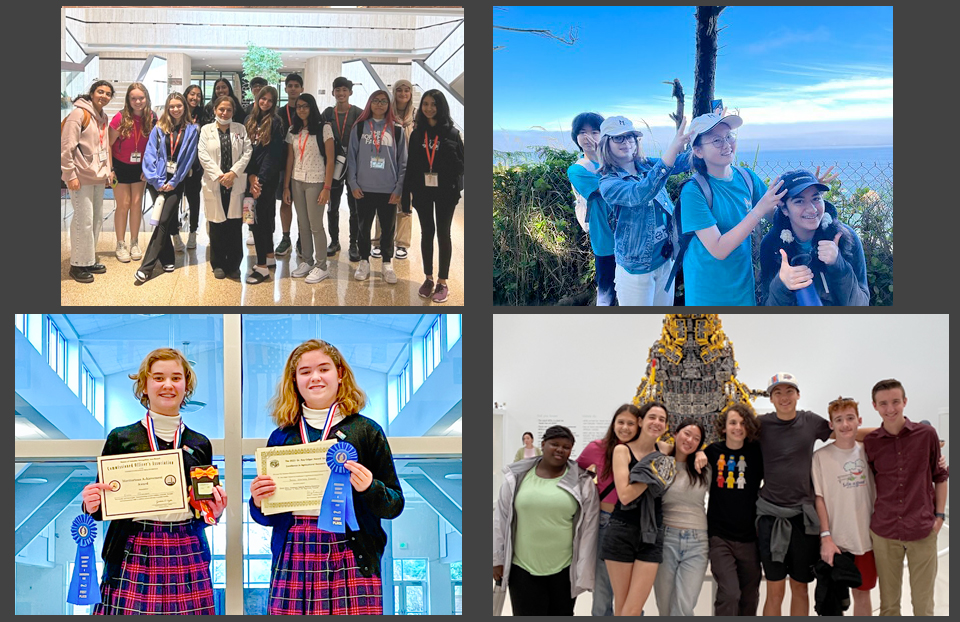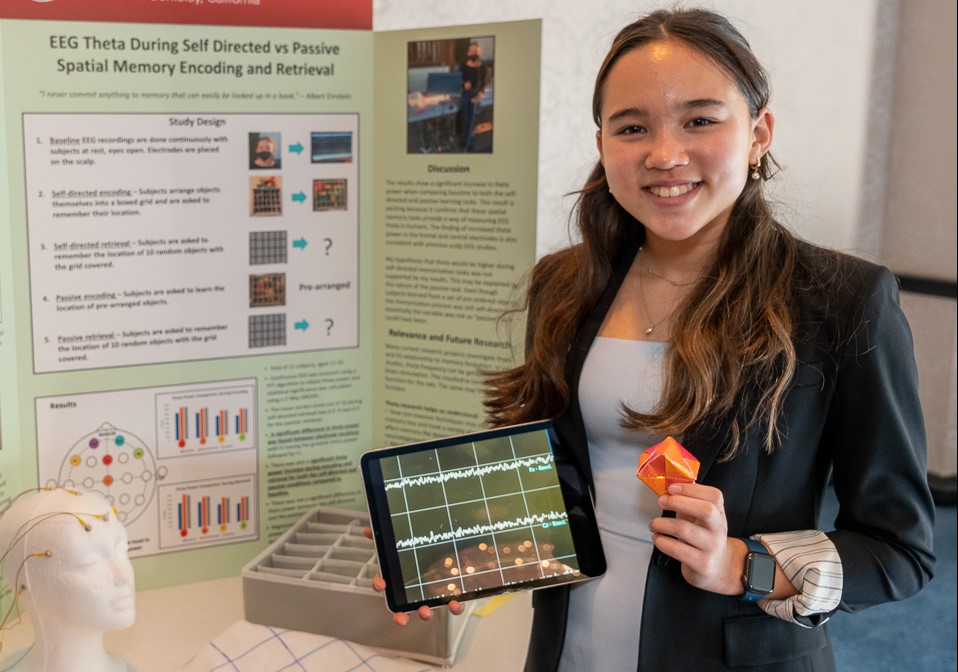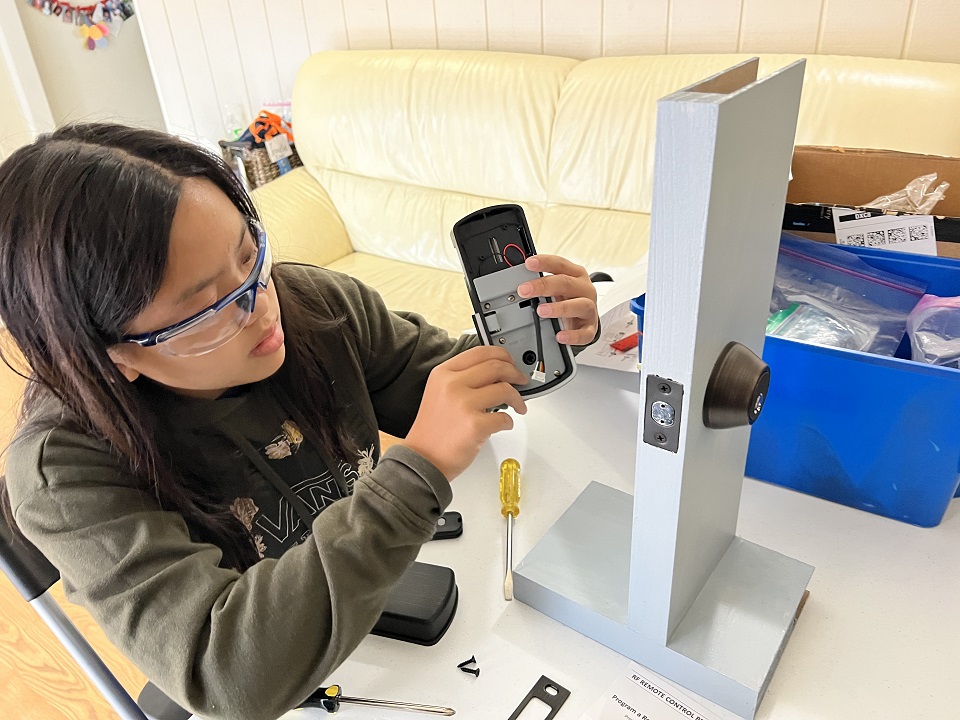Five Questions with Alexis MacAvoy, winner of the Robert Wood Johnson Foundation Award for Health Advancement
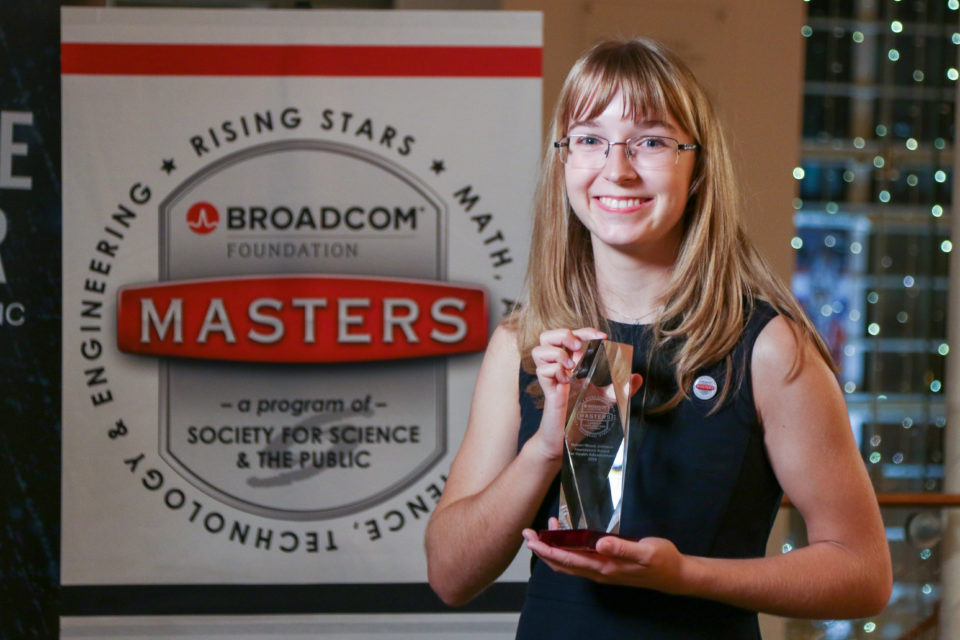
Alexis MacAvoy is a high school freshman from Hillsborough, California, and the recipient of the 2019 Broadcom MASTERS $10,000 Robert Wood Johnson Foundation Award for Health Advancement.
In her Broadcom MASTERS project, Alexis designed and synthesized low-cost and ecofriendly activated carbon from biowaste precursors to remove heavy metals from industrial wastewater. After learning that millions of dollars have been spent cleaning up her local San Francisco Bay area, she wanted to do something to help. “Heavy metal contamination is still a problem there and elsewhere,” she notes, and suggests that much of the problem could have been avoided if people had filtered their wastewater. Many commercial water filters use activated carbon. The material’s tiny carbon bits have been processed with high heat to give them lots of tiny pores. Their surface area helps the bits adsorb contaminants. Using bio-wastes would be eco-friendly and lower the costs of wastewater treatment, she reasoned. Read more about Alexis below.
What would you tell your 5-year-old self if you could talk to them today?
Don’t refuse to do everything that people suggest you should do. Learning Spanish at five is significantly easier than learning Spanish in middle and high school. Take some of that raw stubbornness and turn it into perseverance and willpower. Take advantage of opportunities you are given because you might not always have them. Don’t try to contact future me, or else you might cause a tear in the space-time continuum or mess up the future.
Best,
2019 Alexis
What’s next for you?
In science, I am going to finish my activated carbon exploration, do a few more tests, build a working prototype and apply for a patent. I am also trying to fit in time to explore an area of science that I might want to concentrate on for the rest of high school. In this new endeavor, I need to find a lab and mentor that would assist me in my pursuits.
I’m also looking forward to starting concertos on the violin in a year or two after I master some more techniques and pieces in between. I love the Sibelius and Tchaikovsky violin concertos and hope to play them some time. I think being open to new opportunities is also really important.
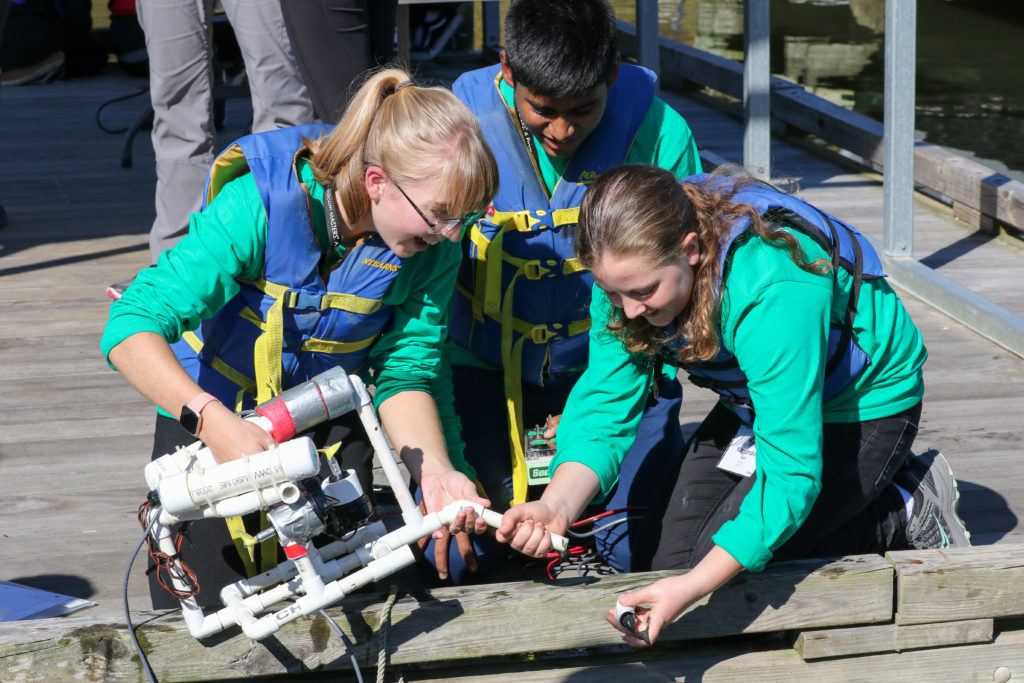
What was your experience like at the Broadcom MASTERS?
Broadcom MASTERS was the best program I’ve ever experienced in my almost fifteen years of life! We worked so hard on our projects; meeting 29 other people with similar passions was inspiring. Explaining our projects to a wide variety of people during the project showcase, the team challenges (my personal favorite) and the cool evening activities were entertaining and allowed us to bond as a big team of rising scientists. The skills I’ve learned will stick with me for the rest of my life.
What issues do you feel all countries should unite to take on?
We cannot deal with the climate crisis in merely one country. For our planet to recover from the hardships it has endured, we need to tackle the problem from all sides. I think something often overlooked in the issue of the climate crisis is that not every single country can do everything, and that’s okay. If one country gets a lot of sun or wind, they can focus on using renewable energy with those assets. If another country has an efficient legal system where it is easy for them to pass laws that restrict pollution, they can focus on that. Of course, doing everything will benefit us the most, but doing nothing is not an option.
What risk do you think is always worth taking?
A risk that you genuinely want to take is always one worth taking. If you’re undecided, or if someone else wants you to take a risk, listen to your gut. It’s simple, but it works. I have felt the consequences of ignoring my gut one too many times. Do what you think is right.
